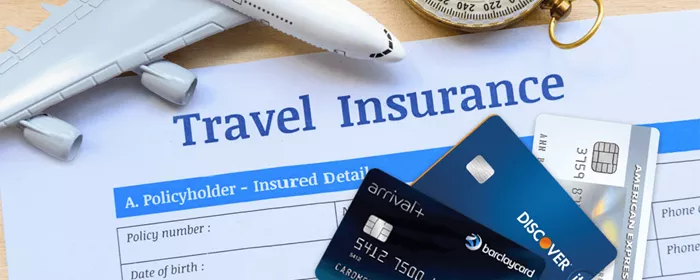Travel insurance is a valuable safety net that provides financial protection against unforeseen events before or during a trip. While there isn’t a definitive “too late” to get travel insurance, timing does affect the comprehensiveness of coverage. The closer you are to your departure date, the fewer options you may have and the more limited your coverage might be. Purchasing travel insurance as soon as you book your trip is ideal to maximize coverage benefits, especially for pre-existing conditions and trip cancellation. This article explores the optimal times to purchase travel insurance, factors influencing last-minute purchases, common scenarios, and recommendations for travelers.
General Guidelines
Ideal Time:
The best practice is to buy travel insurance immediately after booking your trip. This ensures you have coverage in place for unforeseen circumstances that may arise before your departure. Early purchase often includes benefits such as coverage for pre-existing conditions and comprehensive trip cancellation protection.
Before Departure:
Having travel insurance confirmed before your departure date is critical. Many policies activate upon departure, meaning you must have purchased the insurance before you start your journey to be covered for incidents occurring during the trip.
Factors Affecting Last-Minute Purchases
Pre-Existing Conditions:
Most travel insurance policies have a look-back period. If you purchase insurance after a certain date, typically 14-30 days from booking, pre-existing conditions may not be covered. It’s crucial for travelers to review policy terms to understand coverage limitations related to existing health conditions.
Coverage Limitations:
Last-minute purchases can result in limited coverage or exclusions for specific events. Insurance providers may impose restrictions on coverage benefits based on the proximity to the departure date. Certain benefits, such as trip cancellation due to a new medical condition or natural disaster, might have limited coverage if purchased shortly before departure.
Higher Premiums:
Insurance premiums often increase as the departure date approaches. This is because insurers perceive higher risk associated with last-minute purchases, such as potential cancellations or claims filed immediately after policy activation.
Common Scenarios and Recommendations
Already Booked, Departing Soon:
If you’ve already booked your trip and are departing soon without travel insurance, contact an insurance agent promptly. They can assist in finding available options and understanding any coverage limitations based on the proximity to departure.
Trip Changes or Unexpected Events:
Even if travel insurance is purchased, circumstances may change unexpectedly. Some policies allow for adjustments to coverage to accommodate new medical diagnoses, family emergencies, or natural disasters affecting travel plans. Travelers should review policy flexibility and options for adjustments with their insurer.
See Also: How To Make A Claim Travel Insurance
Emphasis on Early Purchase
Benefits of Early Purchase:
Purchasing travel insurance early offers several advantages. It ensures comprehensive coverage, including protection for pre-existing conditions and optimal trip cancellation benefits. Early buyers often benefit from lower premiums compared to those who purchase closer to their departure date.
Conclusion
Timing is crucial when purchasing travel insurance to maximize coverage benefits and financial protection. While it’s never too late to get travel insurance, purchasing soon after booking your trip ensures comprehensive coverage and may result in lower premiums. Travelers should consult with an insurance agent early in their trip planning process to understand policy terms, coverage options, and potential limitations based on timing. By prioritizing early purchase and thorough policy review, travelers can travel with confidence knowing they have adequate protection against unforeseen events during their trip. Contacting an insurance agent for personalized advice and obtaining quotes early in the planning phase ensures travelers are well-prepared with the right travel insurance for their needs.
[inline_related_posts title=”You Might Be Interested In” title_align=”left” style=”list” number=”6″ align=”none” ids=”2808,2805,2737″ by=”categories” orderby=”rand” order=”DESC” hide_thumb=”no” thumb_right=”no” views=”no” date=”yes” grid_columns=”2″ post_type=”” tax=””]






















